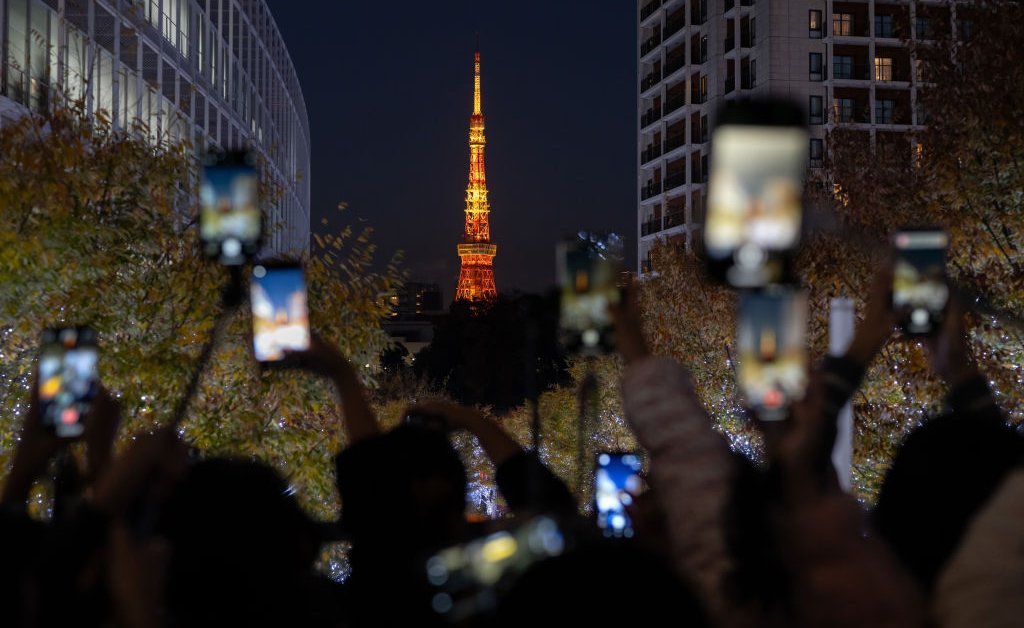A city in central Japan is urging its residents to limit their phone use for leisure to just two hours or less a day, because the mayor is concerned about the impact of spending too much time on devices.
Toyoake, a city of 68,000 inhabitants in the Aichi region of Japan, saw a set of new mobile and tablet use guidelines come into place on October 1.
“Be mindful of your sleeping hours and health, and discuss with your family how much time you will spend on smartphones and other such devices,” a message from the Toyoake municipal government said in an email sent to elementary and junior high school students regarding the change.
In another email to parents and teachers, the local government said: “The primary purpose of the ordinance is to ensure sufficient sleeping hours,” according to Japanese media.
This is the main concern of city mayor Masafumi Koki. “Junior high school students are often given their own rooms and their own phones,” said Koki in a recent interview with Japanese outlet Kyodo News. “With nothing else to do, they spend hours staring at screens. Day turns to night, their sleep suffers, and the cycle repeats.”
Koki himself uses his phone throughout the day, but wants to limit its use for non-work or educational purposes, plus encourage younger people to shut off in the evening. For students aged 6 to 12, the mayor wants phones and tablets to be put down by 9 p.m. For older students, and even adults, Koki encourages switching off by 10 p.m. to ensure that sleep isn’t disturbed.
The proposal was first announced in late August, and immediately drew criticism from those who said it was infringing on personal freedoms.
“In just one sentence: It’s none of your business,” said local lawmaker Mariko Fujie in response to the proposal, adding: “Many of my supporters are saying that it’s condescending for the city to say such a thing. This ordinance is total nonsense.”
Fujie also published a newsletter arguing that the encouraged phone limitation was not based on scientific evidence and disregarded the rights of children and young residents.
But the measure, which was approved by the city assembly in late September in a 12-7 vote, is more symbolic than enforced. The local government won’t track users phone usage, nor will it enforce fines for going beyond the two-hour limit recommendation.
Mayor Koki reacted to the criticism, saying that “the figure of two hours took on a life of its own. People thought we were trying to impose a strict time limit. That’s not the case at all.”
For Koki, the non-enforced limit is more about sending a message, encouraging users to consider their screen time. “If someone hears two hours, they’ll stop and think about how long they really use their smartphone. That’s the point,” he said.
Despite the criticisms, some residents have tried to limit their screen time to two hours.
Shoki Moriyama has reduced his screen time from eight hours to just under two. He admitted it had been a struggle but was worth it.
“I used the extra time to read a book, study a little and go to the gym, so my day wasn’t wasted,” he told The Guardian.
University student Akari Saito agreed. “I found it especially hard to put it away during my train commute to school or while I was walking,” said Saito. “But I can see that reducing my phone use might make the day feel longer and allow me to spend it more meaningfully.”
A study published in April found that “greater digital technology use is associated with poorer childhood well-being. Another study focusing on teenagers in China found that “screen time was negatively related to adolescents’ academic performance, and that surfing the internet and playing games had a greater negative effect on academic performance”.
The study published in July found that sleep duration, mental health, and relationships between children and parents were all impacted by the amount of time that teenagers were spending on their devices.


AloJapan.com